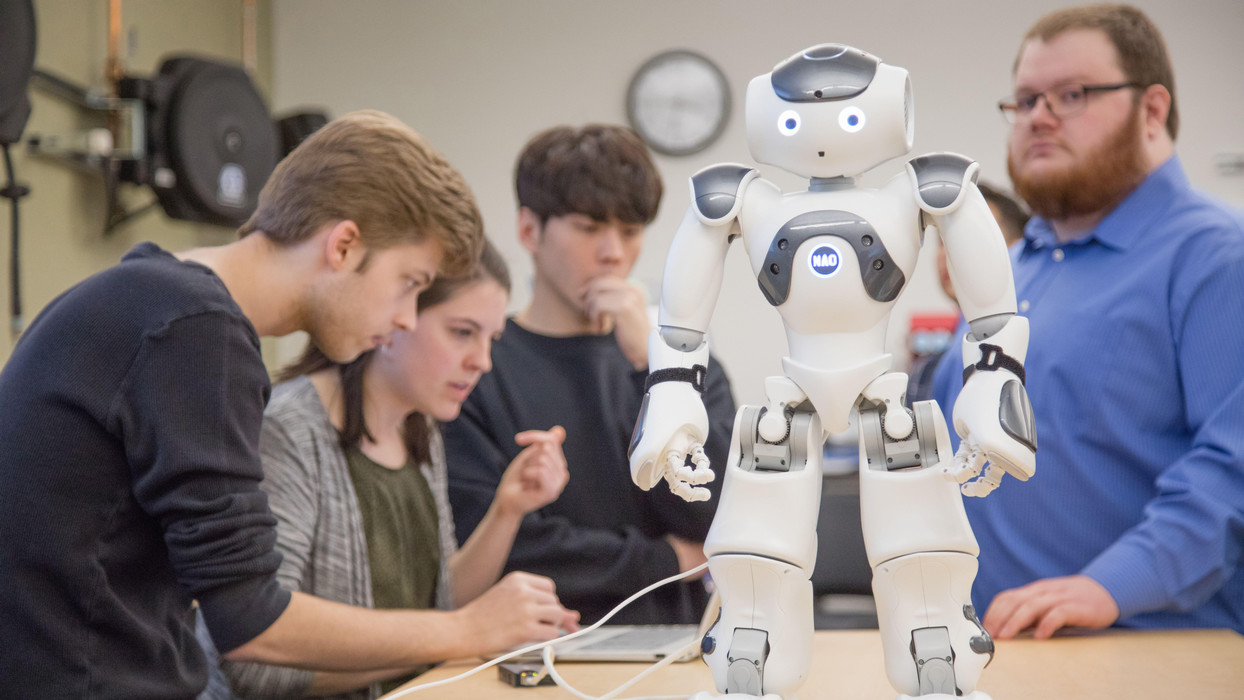
Computer Science
Graduate Students
Overview
Computational Science is the field of study concerned with constructing mathematical models using computers to analyze and solve scientific problems. In practical use, it is typically the application of computer simulation and other forms of computation to problems in various scientific disciplines. Computational Science has become critical to scientific leadership, economic competitiveness, and national security.
CWU offers a Master’s Program with the aim to prepare students for professional computational science careers or to pursue a doctoral degree. The computational core of the program has been created through modular and flexible inter-departmental collaboration. The program promotes the expansion and strengthening of the collaborative educational and research efforts across the College of the Sciences.
About The Program
The Computational Science Master’s Program is coordinated by a Program Director from the Computer Science Department who is responsible for working with graduate students and their direct advisors in developing individual courses of study, establishing graduate committees, and in advising graduate students. In all matters relating to university regulations, the Dean of Graduate Studies and Research is the final arbiter, though he or she consults with departmental officers in carrying out these duties.
The program is delivered at the CWU Ellensburg campus and consists of a combination of traditional courses, seminar, and research work amounting to a total of 45 credits at the 400 and 500 levels, or above.
At least 25 credits of the total required must be numbered 501 or above. Courses at the 400 level may be accepted for credit toward the graduate degree provided they are approved as part of the student’s official Course of Study and taken after formal admission to a master’s degree program. In such cases, graduate students are expected to perform at a high level, while completing requirements in addition to those expected of undergraduates enrolled in the course.
Students will complete 22 credits of core course work and 5 credits of thesis/capstone project work. Additionally, students will complete at least 8 credits of elective course work in their selected area(s) of expertise.
Graduate students (F-1 international and domestic) are considered full-time if taking at least 10 credits per quarter. This may qualify some students for financial aid. We do also accept part-time enrollment. U.S. immigration regulations require F-1 international students to register for and complete a full course load (minimum 10 credits) each quarter. An exception to the full-time requirement can be made in their final quarter in which they may be considered full-time if enrolled in 2 credits for research or thesis and as long as all other coursework has been completed and the proposal has been defended.
A typical break down for a student in the program would be: 22 credits core courses; 18 credits electives, including graduate research; 5 credits thesis/capstone project.
The core coursework of the program
- Advanced data structures and algorithms
- High-performance computing
- Advanced algorithms for scientific computing
- Scientific computing
- Computational statistics
Students may specialize in one of the following Computer Science application areas: Cybersecurity, Big Data Analytics, Software Engineering, Data Mining, Machine Learning, Mobile Computing, Scientific Computing, Computer Vision, Parallel Computing, Intelligent Systems, Bioinformatics, Data Science, Robotics.
Students will focus on a year-long research project with a direct advisor in their selected area of expertise. Alternatively, and with the approval of the Computational Science Master’s Program Committee, students will have the option to do work on this project with industrial partners of the program.
Students will be required to do a thesis or a capstone project at the end of the program. The two alternatives (thesis or project) mean that students may choose between a research and a professional orientation. A thesis is required for students that demonstrate their ability to conduct original, independent research. A capstone project is required in instances where the faculty and student determine that a special project, rather than a thesis, will strengthen the student’s learning experience.
The thesis/capstone project topic must be approved in its preliminary stages by the student’s graduate committee, the Master’s Program Director, and the Dean of Graduate Studies and Research. The thesis/capstone project graduate committee will consist of at least three members and is chaired by the student’s advisor. Interdisciplinary membership in this committee is strongly recommended and at least one member of the committee should be from the Computer Science Department.
CWU News

CWU to highlight student research at next week’s SOURCE conference
May 8, 2024
by Rune Torgersen

CWU Theatre and Film to present ‘Footloose’ the next two weekends
May 8, 2024
by University Relations